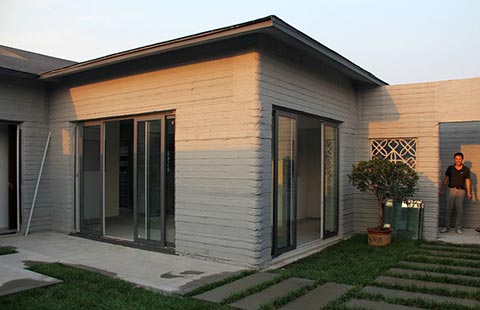Fund to back China's E. Africa investment
By Lucy Morangi and Pan Zhongming in Nairobi (China Daily) Updated: 2016-09-24 07:43Establishment of CADFund representative office in Nairobi seen as catalyst for growth
The China-Africa Development Fund said on Thursday that it was poised to strengthen its investment efforts in the East Africa Community region with the establishment of its representative office in Nairobi, Kenya.
The office, based in Nairobi, is the fifth in Africa after others in South Africa, Ethiopia, Zambia and Ghana. It is specially designed to cater to the EAC.
The new Kenya office aims to support and guide more Chinese companies and financial institutions to invest and set up business in the EAC region.
The CADFund is funded by the China Development Bank to stimulate investment in Africa by Chinese firms in major sectors including transport infrastructure and power generation. The EAC, for its part, is a subregional organization where six member countries - namely Kenya, Uganda, Tanzania, Rwanda, Burundi and South Sudan - enjoy some of the highest economic integration and development on the continent.
"The steady economic growth in Kenya, adding to its great economic potential after the completion of the Mombasa-Nairobi Standard Gauge Railway next year, will help drive the economic development in the East Africa Community," said Chi Jianxin, chairman of the CADFund.
Statistics indicate that by the end of July this year, China and Africa had signed 245 projects with a total contract value of $50.7 billion. Of that, $46.5 billion were commercial loans and investments.
Chi said the figures demonstrated that the Forum on China-Africa Cooperation had provided a new impetus and become a new engine for China-Africa development.
"We are glad to see that the Kenyan government is, by all means, encouraging the private sector to be engaged in the projects by way of the PPP (Public-Private-Partnership) model," the chairman said.
He added that the CADFund believed that the private sector could play an important role in mobilizing resources for infrastructure and social development.
"We are excited about the CADFund's move to establish its presence in Africa because it will help the government achieve its mandate as stated in the development blueprint vision 2030," said James Macharia, Kenyan Cabinet Secretary at the Ministry of Transport, Infrastructure, Housing and Urban Development.
"Most importantly, its first footprint is in the housing sector where we have a huge gap."
A 2013 survey undertaken by the Kenyan government revealed that the country's housing demand stood at 200,000 housing units annually, as against the 20,000 supplied by the private sector.
At the opening ceremony, the CADFund signed a memorandum of understanding with the Kenya Investment Authority, and a four-party agreement on cooperation for the development of 20,000 housing units.
Macharia said that by using the PPP initiative, the government hoped to attract Chinese investors to opportunities such as slum upgrading, social amenities, mixed use housing developments and housing for the disciplined forces and other civil servants.
"Choosing Kenya is a reflection of China's confidence in our strong and robust economy, deep bilateral relations and strategic position in the region," said Kenya's Cabinet Secretary to the National Treasury, Henry Rotich.
Sustainable development goals agreed on last year need trillions of dollars in investments, he said, adding that the government is happy that the CADFund is complementing its own efforts.
- 5th China-Eurasia Expo held in Urumqi
- AIIB to be housed near site of Beijing Olympics
- Huawei begins making phones in India
- Wanda to open Hefei theme park to duel Disney
- Marriott hotel group to double presence in China
- P2P lender Lufax taps four banks for Hong Kong IPO
- Fund to back China's E. Africa investment
- China's yuan heads for global currency status

















